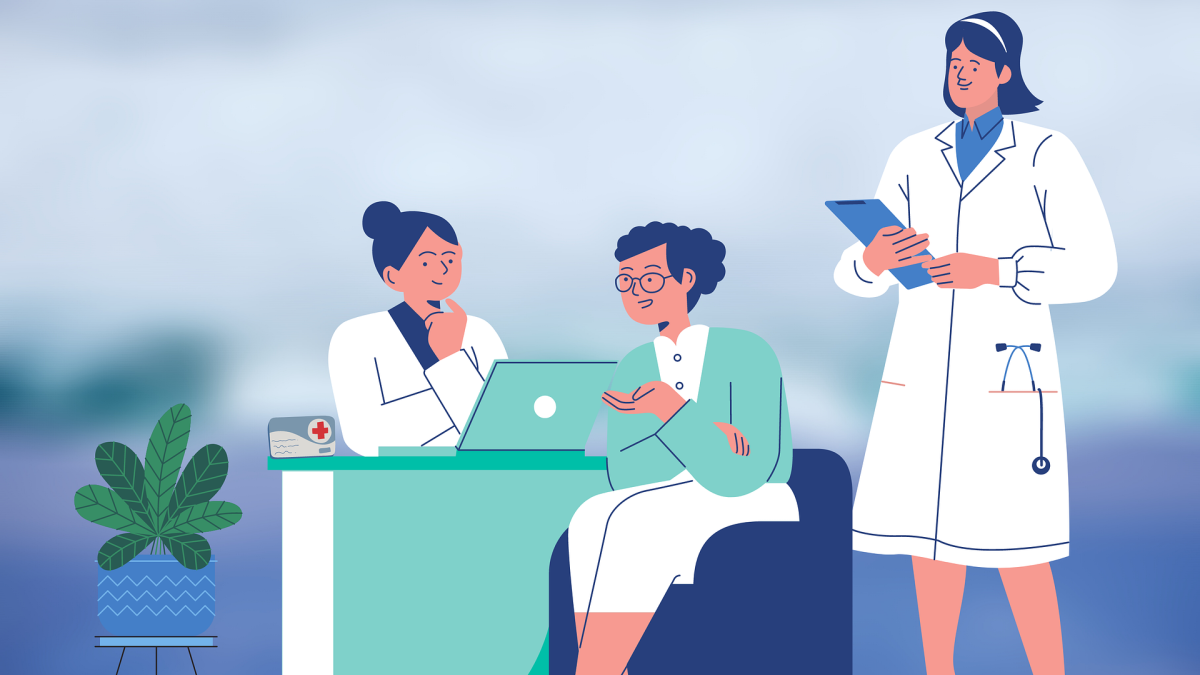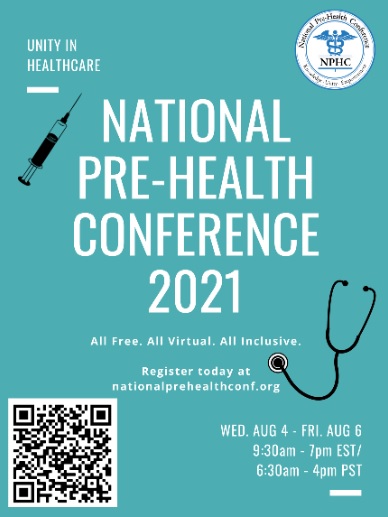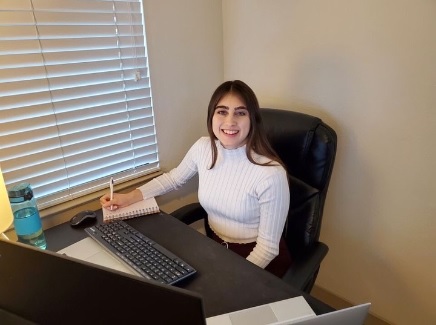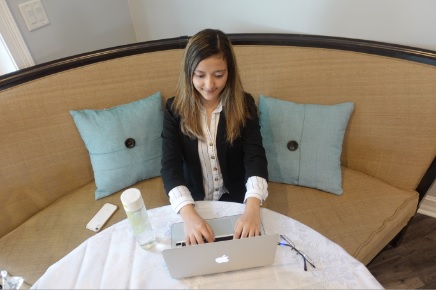National Pre-Health Conference to focus on 'unity in health care' following pandemic year

Alexia Childress is just one of the many pre-med students in her network of friends and colleagues who say they experienced even more challenges than usual while pursuing their future careers during spring 2020.
The current ASU medical microbiology senior, who was in the midst of a semester abroad at a research lab in Switzerland at the time, had to cut her trip short before she could present her work due to mounting concern about the rapid spread of a then-little-known coronavirus. Friends of hers watched as internship and clinical opportunities dwindled in the face of a swiftly evolving pandemic that soon demanded the undivided attention of every health care facility in existence.

In response, Childress founded the National Pre-Health Conference with childhood friend and fellow pre-med student Alejandra Bahena to bring together pre-med students from across the country to share academic and career advice and resources at a time when they were sorely needed, in an accessible, virtual format.
With more than 1,000 students, faculty and health care professionals participating, the conference’s inaugural year was a great success. But one thing Childress and Bahena learned as students pursuing careers in health care during a pandemic was just how important interprofessional collaboration is in the field.
“The pandemic really showed how solving complex medical problems requires input from many different medical professionals,” said Childress, who is using the founding of the National Pre-Health Conference as a case study for her honors thesis.
With that in mind, she, Bahena and other conference leaders decided to open up this year’s conference to participation for all pre-health students — not just pre-med — and set the theme as “unity in health care.” Beginning Wednesday, Aug. 4, and continuing through Friday, Aug. 6, health care professionals with years of experience will connect with students through the same virtual format as the previous year and share about their journeys and expertise through interactive sessions, including a research expo, wellness discussions and even games.
“Alexia and her colleagues have created a much-needed vehicle for communication among and education of pre-health students around the country,” said Carolyn Compton, a professor of life sciences and Childress’ thesis director.

Alexia Childress on day one of the 2020 National Pre-Health Conference, which she ran and attended virtually from her home in Scottsdale, Arizona. Photo by Alex Amaya
“Through the National Pre-Health Conference that they have developed and delivered flawlessly, they bring a rare personal experience for the participants by bringing them together with health care practitioners of all types in an intimate format. Learning from the personal experience and perceptions of those in the profession and being able to pose questions to them directly is a rare privilege that can provide invaluable guidance for a student’s career path.”
From the beginning, Childress and Bahena knew how precarious, and yet meaningful, it was to create something that was run by students for students — so they wanted to ensure that it would be sustainable in the years following their graduation.
“I encountered a lot of challenges as a pre-med student because of COVID, but also before that, because I’m a first-generation, low-income student,” Bahena said. “I had started questioning my potential as pre-med student, but luckily I was able to reach out to mentors and other support systems. That’s when I realized not everyone has access to those types of resources. … What Alexia and I hope is to create a legacy with the National Pre-Health Conference.”
Aditi Galande, one of the 18 students from various universities across the country who currently serve on the conference’s student leadership team, said she wanted to participate because she knows what it’s like to be the first in your family to pursue a career in health care.

Alejandra Bahena on day one of the 2020 National Pre-Health Conference, which she ran and attended virtually from her home in Celebration, Florida. Photo by Tanya Bahena.
“I didn't have anyone close to me that was in medicine and could help me or guide me other than my own physicians,” said Galande, a junior double majoring in medical microbiology and global health at ASU. “So I think this is such a cool opportunity for other students that also might not have doctors or health care professionals in their family.”
In addition the importance of interprofessionalism in health care, another issue the pandemic brought to light was the glaring inequities in the field when it comes to socioeconomic status. That’s something that will be getting a lot of attention at this year’s conference as well.
“I think even as we move forward from the pandemic, it's very important to still realize that we need to do our best to take care of all types of people, from all different backgrounds,” said Madeleine Zheng, a biochemistry junior at ASU who serves as director of development for the National Pre-Health Conference. “We want to address that in our conference so that the next generation of health care professionals already have it in their mind as they go into the field.”
Whatever issues may arise in health care in the years to come, Childress and Bahena feel they have laid a sturdy foundation for future student leaders to be able to address them while still building each other up in the process.
“We definitely want students to learn about what’s going on in the field,” Childress said, “but ultimately, we want them to come away with more confidence in pursuing their pre-health careers. And we think this conference can do that.”
To register for this year’s National Pre-Health Conference, visit the conference website.
Top photo courtesy of Pixabay
More Health and medicine

New initiative aims to make nursing degrees more accessible
Isabella Koklys is graduating in December, so she won’t be one of the students using the Edson College of Nursing and Health Innovation's mobile simulation unit that was launched Wednesday at Arizona…

Reducing waste in medical settings
Health care saves lives, but at what cost? Current health care practices might be creating a large carbon footprint, according to ASU Online student Dr. Michele Domico, who says a healthier…

ASU offers bilingual counseling to Spanish speakers
Arizona is one of the five states in the nation with the highest percentage of Hispanic residents, according to the U.S. Department of Health and Human Services Office of Minority Health, and …

